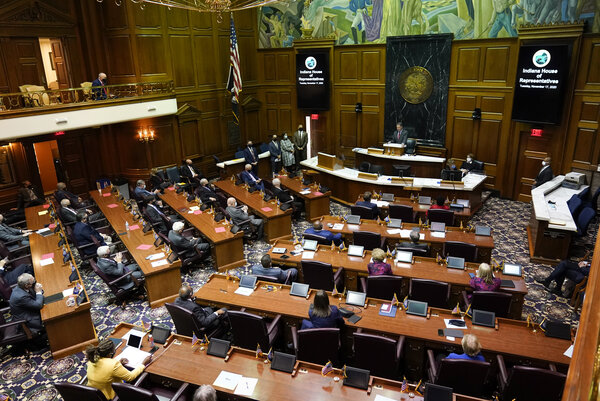
Where did lawmakers land on data center payments, rental caps, IEDC credits?
Indiana lawmakers sent Gov. Mike Braun a hefty local finance bill on the last day of the legislative session, weighing in on thorny topics such as local income tax allocations, rental property caps and data centers.



















